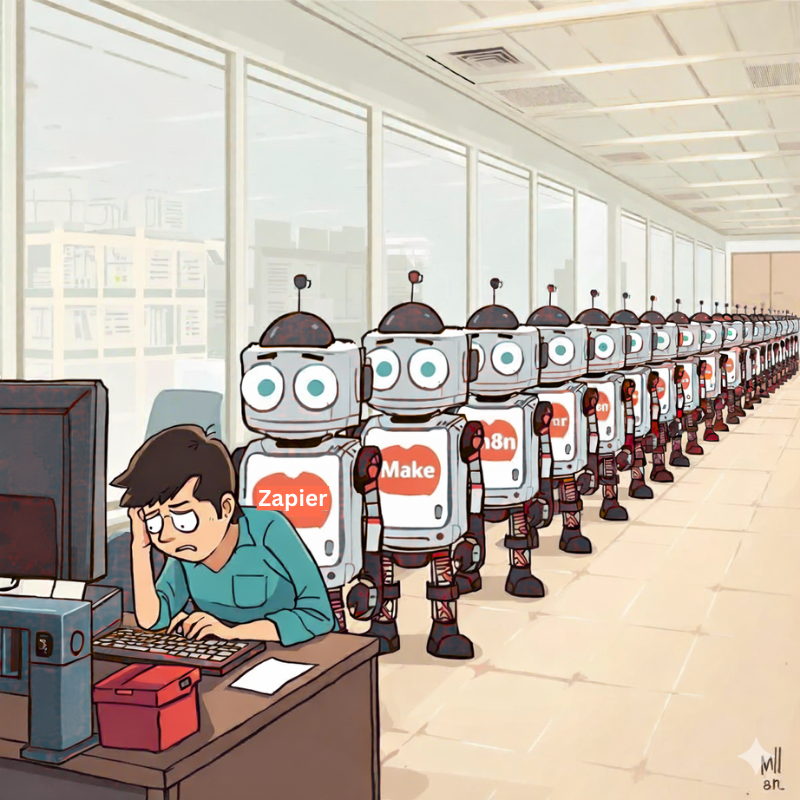
The skill everyone’s racing to learn today could be irrelevant tomorrow.
Automation platforms. API wiring. Workflow builders. For the past few years, these have been the hot skills that promised job security and high income.
But AI is now starting to automate the very act of building automations. What was valuable yesterday won’t necessarily survive what’s next.
The Learning Curve Problem
Industry research backs this up. Harvard Business Review reports the half-life of technical skills is now just 2.5 years, and shrinking. That means by the time you’ve mastered a tool deeply enough to be useful, there’s a good chance AI or another platform update has already outpaced it.
And just a few days ago, a leading automation agency founder admitted the same. The expertise that built his multi-million-dollar business is quickly losing value because AI can now generate entire workflows from plain-English descriptions of business requirements.
The learning curve simply can’t keep up with the pace of change.
The Real Skill: Problem Definition + Prompt Engineering
So if automation tools are being automated, what endures?
The answer is problem definition, and the ability to articulate that problem to AI through natural language prompt engineering.
Prompt engineering isn’t about memorising templates. It’s about being able to:
- Translate messy business needs into structured, testable instructions.
- Provide clarity and context so AI can generate relevant outputs.
- Iterate with AI to refine results until they match business requirements.
In other words, prompt engineering is the enduring interface skill. The bridge between organisational problems and AI-generated solutions. If you can do this, you can move fluidly between tools, models, and platforms. If you can’t, no level of tool-specific training will future-proof your career.
Why This Matters for Organisations
When companies chase tools first, they often end up with duplication, frustration, and automations that don’t solve the right problems. Millions are wasted each year on licences and training that never deliver value.
The organisations that win are the ones that invest upfront in clarity: defining the right problems, aligning teams, and equipping staff with prompt engineering skills to communicate those needs to AI. That’s where adoption becomes safe, strategic, and sustainable.
Future CoLab 3000
At Future CoLab 3000, we help organisations stop chasing tools and start building clarity. Our AI Adoption Readiness Assessments map out impacts across people, processes, data, and technology — and identify the real problems worth solving.
From there, we train teams in the enduring AI skills that bridge business needs and AI capability.
Contact me to assess your organisation’s AI readiness and prepare your people to work with AI confidently and strategically.